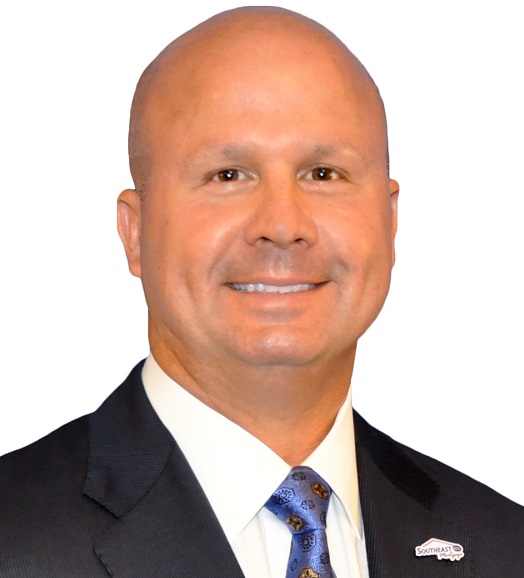The Blueprint for Future Success Lies in People, Not Profit

In today’s transactional mentality where quotas and the race to close deals has become the cure-all for building profitability and beating out the competition, we often lose sight of the importance of cultivating successful, long-term relationships and delivering exceptional service—the true secret to success.
Before you think to yourself, “This doesn’t apply to me, I communicate with my clients regularly on social media,” it’s important to differentiate between social media communication and interpersonal communication. In the mortgage industry, we understand the importance of developing a social media presence, communicating frequently with our clients on Facebook and Twitter, and monitoring online conversations to resolve potential customer service issues before they erupt. However, does communicating via social media have the same influence as interpersonal communication? How successful are we in nurturing and building long-term relationships when we’re sitting in front of our computers as opposed to engaging in face-to-face interaction?
In the last decade, there has been a monumental shift in the way we communicate. As a society, we’ve altered our interaction preferring mediated communication over personal communication. We prefer to e-mail rather than meet, text rather than talk and post rather than converse—a shift that has opened the door to more social and professional connectivity within social networking, yet it leaves more clients feeling less personally engaged with those whom they choose to conduct business with.
Thus, while we are undoubtedly communicating more with our thousands of company Facebook fans and our impressive list of professional connections, these connections are often weak ties that won’t stand the test of time. Think about your vast number of LinkedIn connections or your Twitter followers for a moment. How many of them have you had direct contact with in the last year? While there is an element of residual connectivity through status updates, it’s not the type of communiqué that can take the place of face-to-face interaction.
In reality, for the vast majority of organizations, future success doesn’t lie within the thousands of relationships we harvest on social media, but rather, with a relatively small number of people who are critically important to the success of our business. It’s these significant relationships that must be nurtured, fostered and safeguarded.
Professional relationships redefined
If we take a step back and view our professional relationships through the lens our own personal relationships, we draw upon key emotional factors that help us establish the bond within those relationships. Loyalty, commitment, trust, dependability, respect and integrity are all words used to describe a level of emotional attachment found in a strong personal relationship. As you can imagine, no matter how much time someone spends tweeting and posting on Facebook, these attributes can be difficult to convey through the channels of social media.
To build strategic relationships, we need to dedicate a significant portion of our time and energy to those relationships that matter most—our current, past and future clients, and those who have been instrumental in our career and success including our partners, the team we work with and our valued professional connections. If we take time to invest in and safeguard these relationships they will be there for us when we need them the most—through challenging times, tight deadlines, when we need a favor, or to share strategies, resources or insight. Most importantly, we need to build relationships before we need them.
Business relationships should be nurtured much like we nurture our personal relationships. After all, they are the fuel that feeds our success and they require effort to fortify, build and maintain them. They must be mutually beneficial and we must be willing to take the time to care, share, listen, laugh and support in order to build long-term loyalty and connectivity. Our efforts should never be forced or fabricated as this will eventually become transparent. Instead, they should become a normal part of our daily routine. On average, you should spend five percent to 10 percent of your week dedicated to building relationships. If you’re accustomed to eating lunch at your desk or you’ve never taken a client to a baseball game or out to dinner, it might be time to rethink your strategy.
Fortifying strategic client relationships
Your clients are your business, so a critical factor in improving your business is to improve your client relationships. To maximize your relationship with clients, or any professional relationship, try incorporating a few of these straightforward strategies into your daily routine.
Ask more questions
Asking questions opens up a two-way dialogue that allows us to better understand client perspectives, situations and feelings. When you have a conversation with a client, especially a new client, take notes. Jot down important information about them. Ask them whether they’re married, how many children they have, what they do for a living, etc. Ask your client specifically what they are seeking or need from you and be sure to ask for feedback on how well they feel you’re serving their needs and ways you can improve.
Learn the Interests and preferences of your clients
Most people love to talk about themselves. Take advantage of this opportunity and get to know your clients on a more personal level by mastering the art of listening. Take the time to learn about their interests and ask about their preferences. Are they a football fan? What is their favorite type of food or what is their favorite restaurant? Inquire about their hobbies, travels, where they’ve lived, how many languages they speak and when their birthday is. Building lasting relationships doesn’t happen overnight; however, in the long run the return on investment is well worth the effort put forth.
Strive to connect
Whether you schedule a time for lunch or plan an occasional outing at a football game, connecting with your most valued clients is essential. Even if they decline, which they sometimes will, it sends a clear message to your client that they matter, that you’re willing to take time out of our personal life to spend time with them and that you value the relationship. While it isn’t always feasible to carve out time to meet with everyone on your client list, picking up the phone and calling on occasion can do a world of good as well. Calling just to check in, asking how they enjoyed their recent vacation or inquiring feedback on how well you’re servicing them can be a tremendous relationship builder.
Give often, receive occasionally
People who have become powerful relationship builders don’t think about what they can get out of a relationship, but rather, what they can give. To accomplish this we need to be sharply attuned to our clients’ needs and wants. Answer questions before they ask, deliver beyond the expected, give often and be willing to receive on occasion. It’s this mentality that will help build powerful professional relationships and lasting, loyal clients.
Never underestimate the power of appreciation
When was the last time you sent a hand-written thank you note? Saying thank you to your clients should be an active part of your ongoing success strategy. However, all too often we fall short in delivering this important message to our clients. An expression of gratitude through a hand-written note, a personal phone call or a small gift delivered to their door will convey to them how much you appreciate them, how important they are to you and that you value their business.
Above all, be genuine
Oftentimes, when companies want our business, they’re willing to tell us anything and everything to get our attention and solidify our business. However, today’s savvy customers are far too sharp to fall for phony sales pitches. They’re also far too savvy to fall for insincere attempts of interest. No matter how you connect and engage with your clients, above all, be genuine. If you’re not comfortable taking a client to dinner, then don’t. If your comfort level lies more with personal phone calls and hand-written notes, then that’s what you should do. Your desire to reach out and connect with clients should never extend beyond your genuine comfort level.
Balance is key
As important as it is to connect with clients, it’s equally as important to ensure a healthy balance by not straying too far from the professional proverbial line in the sand. Know when to dial it back a notch and give your clients room to breathe. Every client will be different and every client relationship will yield a slightly different approach, however, it’s important to remember that these relationships are, in fact, professional. When interacting with clients always remember that your actions and the way you communicate with them greatly influences their opinion, attitude and respect for you and your firm.

Cal Haupt is chairman and chief executive officer of Southeast Mortgage, with 13 office locations throughout Georgia and is licensed in Alabama, Florida and South Carolina. He may be reached by e-mail at [email protected].
This article originally appeared in the October 2015 print edition of National Mortgage Professional Magazine.





